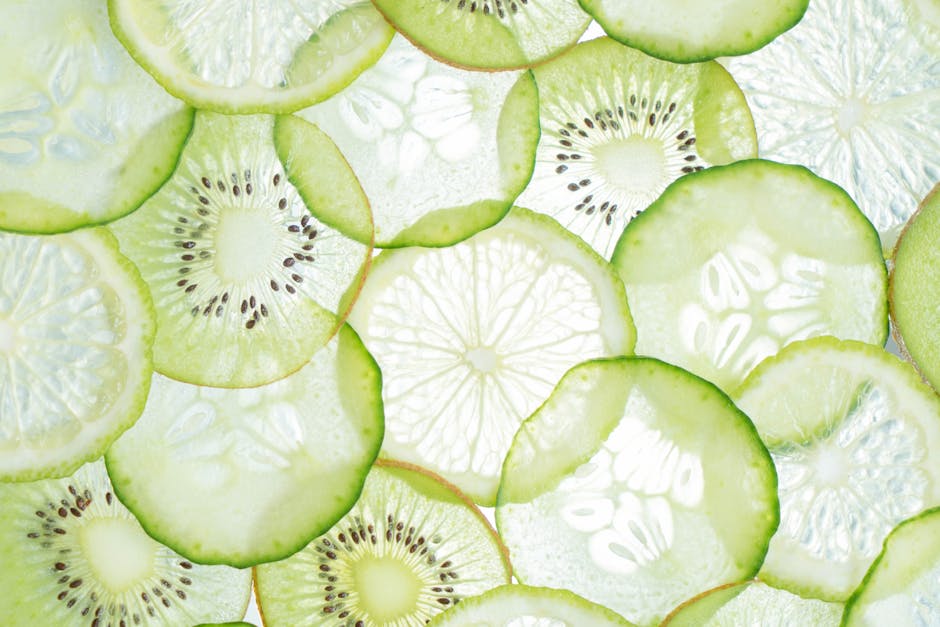As the Paris Olympic Games approach, public discussions about the excitement of sporting events are heating up, and sports stars have become a valuable resource for major brand promotions. Especially since the 2022 Beijing Winter Olympics, winter sports icon Eileen Gu has risen rapidly from the sports event to become one of the top sports stars in the Chinese market.
Eileen Gu ranked second in the Forbes magazine’s 2023 annual list of the highest-paid female athletes, with an annual income of 22.1 million USD, of which 22 million USD comes from endorsement contracts. Not only favored by multiple sports, food, and household brands, she also received support from luxury brands like IWC, Tiffany, and Louis Vuitton, and was appointed as a global spokesperson for Porsche on January 26.
The rise of sports stars is always exciting. Behind Eileen Gu, a group of emerging Chinese sports stars are beginning to gain widespread attention. For example, on April 26th, tennis rising star Zheng Qinwen was officially announced to be the health ambassador for the tea drink brand ‘Bawang Tea’. Zheng Qinwen has established partnerships with brands like Ant Group, Yili, Gatorade, and Rolex, and is praised as a “prodigy.” At this year’s Australian Open, she made it to the final as a dark horse, and since then, Zheng’s competitive strength and commercial potential have been recognized by the market.
Furthermore, Zhou Guanyu, as the first Chinese driver to enter the world of Formula One (F1), endorses brands that range from luxury to national consumer products, such as Hublot, Hennessy, and Dior.
The Paris Olympics will bring global attention and opportunities for Chinese sports rookies. However, unlike the short-term spotlight, whether these sports stars can maintain their market appeal for long remains an unknown. For Eileen Gu, she has to wait until the 2026 Winter Olympics to defend her commercial influence.
In the sports world, the rise of superstars often depends on the three critical elements of “right time, right place, and right people”. For Eileen Gu, her significant personal decisions played a decisive role in building her personal brand and image. Born in the United States to Chinese-American heritage, Eileen Gu made a significant choice before the Beijing Winter Olympics – renouncing to compete for the United States and instead joining the Chinese team. This decision, infused with national sentiment, not only won her more support but also laid the foundation for her subsequent market recognition.
Compared with other outstanding athletes of her time, such as the prodigious Yi Ming who is only a year younger than her, Eileen Gu’s achievements on the global Olympic stage are no less impressive but are far ahead in terms of national attention and the number of brand collaborations. Eileen Gu, with her tall, healthy physique and refined appearance, has won the favor of the fashion world. Her confidence and positive attitude align with the values of the younger generation, making her a preferred choice for brands aiming to drive young markets.
Apart from her personal charisma, Eileen Gu’s skiing events draw middle-class attention, and her world-class educational background gives her strong appeal in the high-end market. During the highly anticipated Winter Olympics, Eileen Gu became the spokesperson for numerous brands competing for collaboration, securing endorsements from over thirty brands thanks to her outstanding performance and personal advantages.
Nevertheless, as her popularity increases, Eileen Gu also faces comprehensive scrutiny by the public and the media, including significant discussion regarding her Chinese citizenship. In the current international climate, her background and public statements often become hot topics on social media, affecting her public favorability and the security of brand partnerships. In response to these questions, Eileen Gu has clearly stated in interviews that she plans to continue representing China in the next Winter Olympics.
However, Eileen Gu mainly lives in the United States and only returns to China for competitions and brand collaborations. This geographical difference inevitably creates a sense of distance between her and her Chinese fans, which may also impact the maximization of her effectiveness in brand collaborations. Moreover, although numerous endorsements have provided her with substantial commercial income, they have also diluted her marketing value with individual brands. Her limited energy cannot ensure frequent interactions with all cooperating brands, and she seems somewhat overstretched in terms of deep brand engagement.
For example, according to statistics, Eileen Gu’s interactions with some brands on her personal Weibo are limited to the release of official videos. Looking at her brand collaboration history, the official announcements during the Olympics were significantly higher than after, and her capability in expanding high-end brands has weakened. Nowadays, Eileen Gu has had to lower the threshold for cooperation, beginning to work with home brands.
Eileen Gu also faces challenges from the commercial limitations of her extreme skiing events. As part of extreme sports, skiing events are few and have limited influence. Even the X Games, considered a top-tier event in extreme sports and in which Eileen Gu participated injured, still need improvement in maturity and reach—unable to support athletes over the four-year Olympic cycle.
China’s sports world is witnessing the rise of young talents in various disciplines, whether in tennis or other sports, with many stories of prodigious youths emerging. Notably, there’s Zheng Qinwen, a young tennis player with a healthy complexion and full of confidence, who made a splash in professional tennis in 2022, demonstrating her extraordinary talent and potential.
At the 2022 French Open, she made it to the last 16 and was awarded the WTA Newcomer of the Year, becoming the first Chinese player to receive this honor. In just two years, she reached the quarterfinals at both the US Open and the Australian Open, earning her the nickname “Rocket Girl.” Off the court, she is known for her poised manner and strong determination and can communicate fluently in English, showing her immense potential on the international stage.
For brands, Zheng Qinwen’s allure goes beyond her excellent performance in sports. Tennis, being a mainstream sport globally with leading exposure and popularity, is an attractive focus for brand sponsorships and ambassadorships. The goal is to increase visibility, and the dense tennis schedule, coupled with high public interest, keeps brands eager to participate, thus enhancing the commercial value of the athletes.
Tennis tournaments almost never cease throughout the year, maintaining extreme popularity worldwide and thus becoming one of the world’s top three commercialized ball sports. In this year’s Australian Open, numerous consumer brands have joined the ranks, with Luckin Coffee and Luzhou Laojiao becoming official partners. Such widespread corporate participation not only displays tennis’s commercial potential but also makes tennis standout in the women’s athlete income rankings. In 2023, Forbes announced that nine out of the top ten earning female athletes are tennis players.
Li Na, as the first Asian woman singles player to win a Grand Slam, also proved the enormous commercial value of tennis players to the world in earlier years. In 2011, she won the French Open championship and quickly became the darling of brands, making it to the top ten of Forbes’ list of the world’s highest-earning female athletes, with her peak earnings comparable to the football superstar Messi.
However, Zheng Qinwen’s brand cooperation still mainly focuses on brands with a clear sport attribute, such as Gatorade and SWEAT. The potential for developing her female-oriented and personalized characteristics has not been fully tapped into yet, and there’s still potential for brand cooperation in categories such as beauty skincare and home furnishings. Of course, to continuously enhance her commercial value, Zheng Qinwen needs to achieve more stable results on the tennis courts.
However, Zheng Qinwen’s withdrawal from the WTA Madrid 1000 tournament due to injury also means that she needs to prove her strength in future events. From the perspective of brand sponsorship, tournament performance is a key indicator to evaluate an endorser, and poor performance might affect brand collaborations. Compared to Zheng Qinwen, Gu Ailing has shown more stable performance in competitions, therefore, becoming a more favored investment for brands.
Of course, in addition to the prodigious young ladies, more and more talented young men are emerging, showing their infinite potential and talent. For example, at the Winter Olympics, Su Yiming entered the public eye with his youthful appearance and excellent performance, constantly increasing his difficulty and popularity.
Regarding the choice of sports events and athletes for brand partnerships, brands generally prefer athletes with a wide national recognition, a positive development trend, and those few top-level athletes with celebrated fame. Especially the champions who frequently emerge in sports like table tennis, diving, swimming, and weightlifting are the priority choice for brands looking for a safe investment. Table tennis players like Fan Zhendong and Sun Yingsha, with their enthusiastic pursuit of singles gold in the Paris cycle, have made them favorites of brands, and so has Wang Chuqin, whose continuing rise has led him to collaborate with more brands.
In team sports, compared to male teams, women’s basketball, soccer, and volleyball teams receive more attention and seem to have a better chance at winning medals. Particularly noteworthy is the Chinese women’s basketball team, which has shone in recent international competitions, winning honors such as runner-up in the World Cup, Asian Cup champions, and champions at the Hangzhou Asian Games. Top athletes like Li Meng, Han Xu, and Li Yueru naturally captivated a host of brands with their outstanding performance.
The symbolic significance of the first gold medal at the Olympics also makes it a strategic focal point for brands to accumulate and swiftly capitalize on. From Yang Qian’s smiling first gold medalist at the Tokyo Olympics to her post-Olympic collaborations with many brands, such as Estée Lauder and Xiaomi Civi 1S, all interpret the commercial value of the first gold effect. Looking forward to the upcoming Paris Olympics, the mixed team 10-meter air rifle and women’s synchronized 3-meter springboard are expected to produce the first gold. The young shooting duo of Huang Yuting and Sheng Lihao, with Sheng Lihao’s world record-breaking achievement at the Asian Games, and their second Olympic campaign, presents a prospect that fills brands with anticipation.
Additionally, the inclusion of four emerging sports—breaking, surfing, skateboarding, and sport climbing—will surely create a frenzy among young consumers. For instance, 15-year-old Chinese surfer Yang Siqi, who has already made it to the stage of the Paris Olympics, will undoubtedly attract the attention of brands. However, the “Matthew effect” of commercial sponsorships is still evident; those excellent yet less-known sports like archery and canoeing often struggle to gain brand attention.
Speaking of the commercial ecosystem of sports stars in China, despite the dual assurance of popularity and performance, the absence of sports stars still exists. Compared to overseas athletes, many domestic athletes lack awareness of IP creation and prefer not to sign contracts with experienced professional agencies to enhance their commercial value. For example, Gu Ailing and Zheng Qinwen have signed with the powerful IMG agency. With the resources and operational advantages of their agents, they have built long-term personal brands. In contrast, many domestic athletes would rather delegate their commercial management to family members; the boxer Zou Shiming is an example of entrusting business cooperation management to his wife.
The competition in the sports market is not only about contests on the field, but also a major test of brand insight. The Paris Olympics will soon reveal the answers, and it will be exciting to see who will be the next Gu Ailing and which brand will successfully predict the future stars.
Dear audience, if you like this content, please do not hesitate to ignite it with your passion. Every share you make, every like you give, acts like a cheer for the next Gu Ailing who is striving. Please pass on this positive energy!







